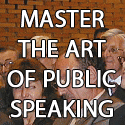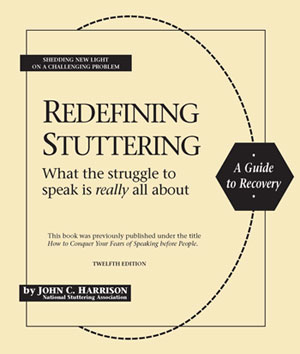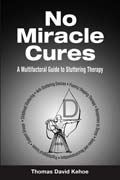In my last post, I spoke about the components that make up the fear of speaking anxiety level of a person who stutters, and I pointed out that irrespective of whether you have had some speech therapy for stuttering to alter the “probability of stuttering”, you need to work on the component of, the “consequence”, of the, belief, that you are about to block and stutter. In this post, I will talk about how we as individuals, determine those personal consequences, but before that I would like to comment on anxiety in general, and the role that it plays in determining the severity level that stuttering occurs at.
 I was reminded by one of my readers, that there are different triggers for anxiety, and that in my last post, I mainly spoke about anxiety that we experience that relates, directly, to our expected performance as a speaker. There is of course general anxiety, that has nothing to do with our speech. Having said that, all anxiety, whether it is speech related or general, is still a factor in determining the, probability and consequence, of speech dysfluency, and we will talk about all that now.
I was reminded by one of my readers, that there are different triggers for anxiety, and that in my last post, I mainly spoke about anxiety that we experience that relates, directly, to our expected performance as a speaker. There is of course general anxiety, that has nothing to do with our speech. Having said that, all anxiety, whether it is speech related or general, is still a factor in determining the, probability and consequence, of speech dysfluency, and we will talk about all that now.
Most people suffer from stress and anxiety, to some degree, and the effects of stress and anxiety effect people in different ways. One of the ways that stress and anxiety effect people who have a, propensity or tendance to stutter, is that they are more likely to stutter when their anxiety level goes above, what I call, their “stuttering threshold anxiety index level”. Why this is, is not fully understood, but some believe that under stress and anxiety, the demands required to produce fluent speech by a person who stutters, are greater than the brain’s capacity to produce that fluent speech, so a breakdown in fluency occurs. Some would argue, that when the anxiety level reaches a certain point, the person who stutters goes into a level of, “fight or flight” response. In doing so, the body prepares itself to fight or flee, and resources for fluent speech are not high on the bodies agenda in this state. John Harrison, in his book “Redefining Stuttering” talks about what he calls, “approach avoidance conflict”, where part of the self, (the adult part), wants to approach the speaking situation, while another part of the self, (the child part), wants to avoid it. With one part of the self wanting to go forward, and the other part wanting to retreat, the result is a stand still, which manifests in a speech block. Bob Bodenhamer, in his book, “Mastering Blocking and Stuttering”, refers to the anxiety of a person who stutters, manifesting in the muscles used to produce speech. No matter what the reason is, it is clear that for most people who block and stutter, the degree of stuttering is generally increased as their anxiety level increases.
What we need to understand, is that our anxiety level is self created to some extent. It is a, “do-it-yourself job”. An, “inside job”, if you like. It is as a result of our subconscious determinations of probability and consequence, combined with our innate general level of arousal. Having said all that, our responses to stimuli, that lead to our determination of probability and consequence, tends to come as a “reflex reaction”, as a result of past experience, but we can learn to override those “hard wired” reflex reactions.
As people who stutter, how can we take control of our reactions? We can do this by challenging these reflex thoughts and feelings, that have been, “programmed”, into our psyche, from our past beliefs, and our own assessment of reality, and “the way the world is”. This programming, has mainly come from our childhood, where were accept the world as we see it, rather than question if the beliefs that we are building about the world, and our place in it, are going to be resourceful to us as an adult or not. We can, and need to, begin to replace these perceptions of the world, with more resourceful analysis, by questioning these somewhat automatic responses to the stimulus before us. If we accept that our initial reflex assessment of the, “consequence” of our stuttering, might be flawed, we can begin to train ourselves to question this assessment.
As a person who stutters, we have invested a great deal of time in developing the ability to, “mind read”. What I mean by this is that, while we are in the process of speaking, we are attempting to assess what the listener is thinking about us, in terms of what we are saying, how we are saying it, our level of intelligence, and generally, our validity as a person. Brain studies have shown activity in parts of the brain of a person who is stuttering, that is not normally active in a fluent speaker while they are speaking. Could this activity be related to this secondary, “mind reading” program, that is running while we are trying to speak? It is understandable, that it would be difficult to speak, and think about what we are wanting to say, while we are trying to assess what the other person is thinking about us, and what the consequences of that might be to us. Not only are we concerned about the primary listener’s response, but also the secondary listeners response. By secondary listener I mean the people around us, not directly involved in the conversation, who are hearing us speak. How often are you just as concerned about what others, who are hearing you speak, are thinking, and what you perceive the consequences of their thought might be.
Comments:








{ 1 comment }
Don't you think your audio would be more effective if it was spoken in your own stuttered speech? When I clicked on the audio, I was actually disappointed to hear the mechanical voice – I was expecting to hear stuttering.
You have a lot of wisdom to share, but I just wonder if it wouldn't have more meaning if it was actually you talking to your listeners. Thats why I do youtube videos from time to time. I want people to hear me stutter – I don't think I am as authentic talking about stuttering if I don't stutter. Does that make sense?
Looking forward to meeting you in Scottsdale!
Comments on this entry are closed.